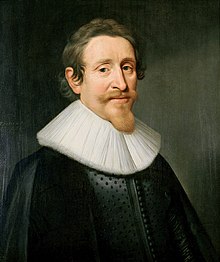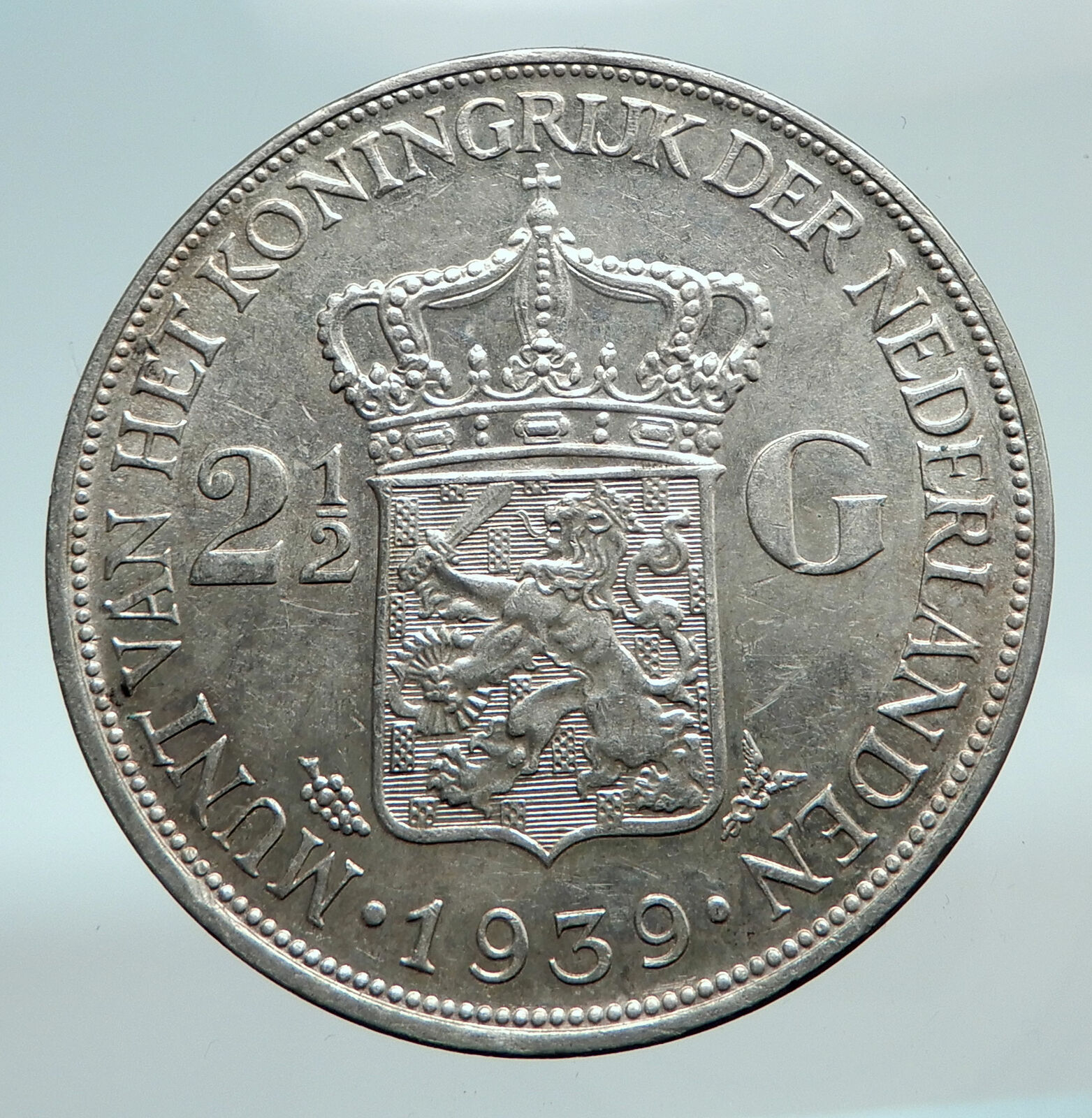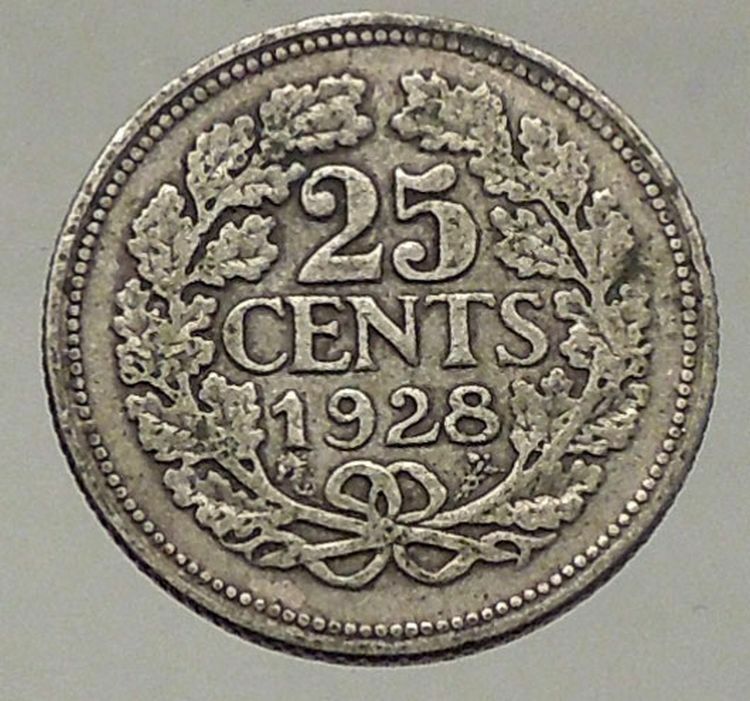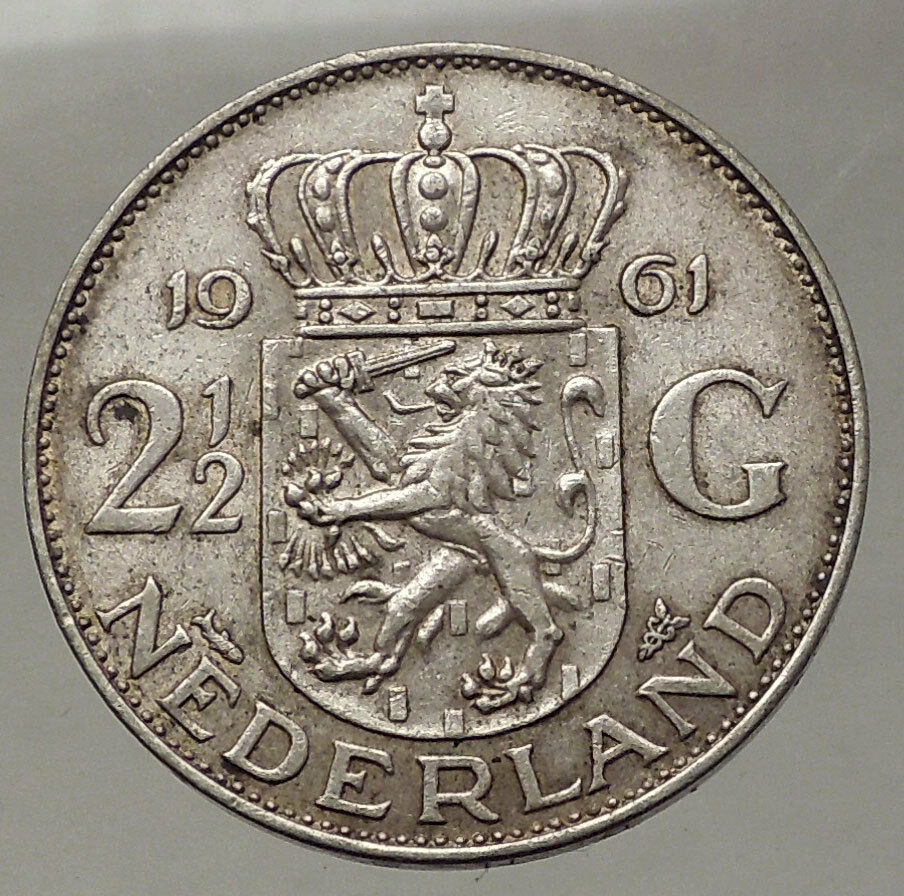|
Netherlands – Queen Beatrix of the Netherlands (Ruled 1980-2013) – Death of Hugo de Groot 300th Anniversary
1995 Proof Silver 10 Gulden 33mm (15.06 grams) 0.800 Silver (0.3858 oz. ASW)
Reference: KM# 220
BEATRIX KONINGIN DER NEDERLANDEN, Effigy of queen Beatrix facing left.
DE IURE BELLI AC PACIS HUGO DE GROOT 1583-1645 1995 10 GULDEN, Hugo de Groot.
Edge Lettering: GOD ZIJ MET ONS
You are bidding on the exact item pictured, provided with a Certificate of Authenticity and Lifetime Guarantee of Authenticity.
 Hugo Grotius ( 10 April 1583 – 28 August 1645), also known as Huig de Groot or Hugo de Groot, was a Dutch jurist. Along with the earlier works of Francisco de Vitoria and Alberico Gentili, Grotius laid the foundations for international law, based on natural law. A teenage intellectual prodigy, he was imprisoned for his involvement in the intra-Calvinist disputes of the Dutch Republic, but escaped hidden in a chest of books. He wrote most of his major works in exile in France. Hugo Grotius ( 10 April 1583 – 28 August 1645), also known as Huig de Groot or Hugo de Groot, was a Dutch jurist. Along with the earlier works of Francisco de Vitoria and Alberico Gentili, Grotius laid the foundations for international law, based on natural law. A teenage intellectual prodigy, he was imprisoned for his involvement in the intra-Calvinist disputes of the Dutch Republic, but escaped hidden in a chest of books. He wrote most of his major works in exile in France.
It is thought that Hugo Grotius was not the first to formulate the international society doctrine, but he was one of the first to define expressly the idea of one society of states, governed not by force or warfare but by actual laws and mutual agreement to enforce those laws. As Hedley Bull declared in 1990: “The idea of international society which Grotius propounded was given concrete expression in the Peace of Westphalia, and Grotius may be considered the intellectual father of this first general peace settlement of modern times.”
Additionally, his contributions to Arminian theology helped provide the seeds for later Arminian-based movements, such as Methodism and Pentecostalism, and he is acknowledged as a significant figure in the Arminianism-Calvinism debate. Because of his theological underpinning of free trade, he is also considered an “economic theologist”.
The Dutch were at war with Spain and Portugal when the loaded merchant ship Santa Catarina, a Portuguese carrack, was captured by captain Jacob van Heemskerk off present-day Singapore in 1603. Heemskerk was employed with the United Amsterdam Company (part of the Dutch East India Company), and though he did not have authorization from the company or the government to initiate the use of force, many shareholders were eager to accept the riches that he brought back to them.
Not only was the legality of keeping the prize questionable under Dutch statute, but a faction of shareholders (mostly Mennonite) in the Company also objected to the forceful seizure on moral grounds, and of course, the Portuguese demanded the return of their cargo. The scandal led to a public judicial hearing and a wider campaign to sway public (and international) opinion.[citation needed] It was in this wider context that representatives of the Company called upon Grotius to draft a polemical defence of the seizure.
The result of Grotius’ efforts in 1604/05 was a long, theory-laden treatise that he provisionally entitled De Indis (On the Indies). Grotius sought to ground his defense of the seizure in terms of the natural principles of justice. In this, he had cast a net much wider than the case at hand; his interest was in the source and ground of war’s lawfulness in general. The treatise was never published in full during Grotius’ lifetime, perhaps because the court ruling in favor of the Company preempted the need to garner public support.
In The Free Sea (Mare Liberum, published 1609) Grotius formulated the new principle that the sea was international territory and all nations were free to use it for seafaring trade. Grotius, by claiming ‘free seas’ (Freedom of the seas), provided suitable ideological justification for the Dutch breaking up of various trade monopolies through its formidable naval power (and then establishing its own monopoly). England, competing fiercely with the Dutch for domination of world trade, opposed this idea and claimed That the Dominion of the British Sea, or That Which Incompasseth.
Grotius’ personal motto was Ruit hora (“Time is running away”); his last words were “By understanding many things, I have accomplished nothing” (Door veel te begrijpen, heb ik niets bereikt). Significant friends and acquaintances of his included the theologian Franciscus Junius, the poet Daniel Heinsius, the philologist Gerhard Johann Vossius, the historian Johannes Meursius, the engineer Simon Stevin, the historian Jacques Auguste de Thou, and the Orientalist and Arabic scholar Erpinius. He was also friends with the Flemish Jesuit Andreas Schottus.
Grotius was the father of regent and diplomat Pieter de Groot.
 Beatrix of the Netherlands (Beatrix Wilhelmina Armgard; born 31 January 1938) is a member of the Dutch royal family who reigned as Queen of the Netherlands from 30 April 1980 until her abdication on 30 April 2013. Beatrix of the Netherlands (Beatrix Wilhelmina Armgard; born 31 January 1938) is a member of the Dutch royal family who reigned as Queen of the Netherlands from 30 April 1980 until her abdication on 30 April 2013.
Beatrix is the eldest daughter of Queen Juliana and her husband, Prince Bernhard of Lippe-Biesterfeld. Upon her mother’s accession in 1948, she became heir presumptive. Beatrix attended a public primary school in Canada during World War II, and then finished her primary and secondary education in the Netherlands in the post-war period. In 1961, she received her law degree from Leiden University. In 1966, Beatrix married Claus von Amsberg, a German diplomat, with whom she had three children. When her mother abdicated on 30 April 1980, Beatrix succeeded her as queen.
Beatrix’s reign saw the country’s Caribbean possessions reshaped with Aruba’s secession and becoming its own constituent country within the Kingdom in 1986 as well as the subsequent Antillean Dissolution in 2010, which created the new special municipalities of Bonaire, Sint Eustatius, and Saba, and the two new constituent countries of Curaçao and Sint Maarten.
On Koninginnedag (Queen’s Day), 30 April 2013, Beatrix abdicated in favour of her eldest son, Willem-Alexander, and resumed the title of princess. At the time of her abdication at age 75, Beatrix was the oldest reigning monarch in the country’s history.
 The Kingdom of the Netherlands, commonly known as the Netherlands, is a sovereign state and constitutional monarchy with territory in western Europe and in the Caribbean. The Kingdom of the Netherlands, commonly known as the Netherlands, is a sovereign state and constitutional monarchy with territory in western Europe and in the Caribbean.
 .svg/220px-Kingdom_of_the_Netherlands_(orthographic_projection).svg.png) The four parts of the Kingdom – Aruba, Curaçao, Sint Maarten and the Netherlands – are constituent countries (landen in Dutch) and participate on a basis of equality as partners in the Kingdom. In practice, however, most of the Kingdom affairs are administered by the Netherlands – which comprises roughly 98% of the Kingdom’s land area and population – on behalf of the entire Kingdom. Consequently, the countries of Aruba, Curaçao, and Sint Maarten are dependent on the Netherlands for matters like foreign policy and defence, although they are autonomous to a certain degree with their own parliaments. The four parts of the Kingdom – Aruba, Curaçao, Sint Maarten and the Netherlands – are constituent countries (landen in Dutch) and participate on a basis of equality as partners in the Kingdom. In practice, however, most of the Kingdom affairs are administered by the Netherlands – which comprises roughly 98% of the Kingdom’s land area and population – on behalf of the entire Kingdom. Consequently, the countries of Aruba, Curaçao, and Sint Maarten are dependent on the Netherlands for matters like foreign policy and defence, although they are autonomous to a certain degree with their own parliaments.
The vast majority in land area of the constituent country of the Netherlands (as well as the Kingdom) is located in Europe, with the exception of the Caribbean Netherlands: its three special municipalities (Bonaire, Saba, and Sint Eustatius) that are located in the Caribbean. The constituent countries of Aruba, Curaçao, and Sint Maarten are located in the Caribbean as well.
|





 Hugo Grotius ( 10 April 1583 – 28 August 1645), also known as Huig de Groot or Hugo de Groot, was a Dutch jurist. Along with the earlier works of Francisco de Vitoria and Alberico Gentili, Grotius laid the foundations for international law, based on natural law. A teenage intellectual prodigy, he was imprisoned for his involvement in the intra-Calvinist disputes of the Dutch Republic, but escaped hidden in a chest of books. He wrote most of his major works in exile in France.
Hugo Grotius ( 10 April 1583 – 28 August 1645), also known as Huig de Groot or Hugo de Groot, was a Dutch jurist. Along with the earlier works of Francisco de Vitoria and Alberico Gentili, Grotius laid the foundations for international law, based on natural law. A teenage intellectual prodigy, he was imprisoned for his involvement in the intra-Calvinist disputes of the Dutch Republic, but escaped hidden in a chest of books. He wrote most of his major works in exile in France.  Beatrix of the Netherlands (Beatrix Wilhelmina Armgard; born 31 January 1938) is a member of the Dutch royal family who reigned as Queen of the Netherlands from 30 April 1980 until her abdication on 30 April 2013.
Beatrix of the Netherlands (Beatrix Wilhelmina Armgard; born 31 January 1938) is a member of the Dutch royal family who reigned as Queen of the Netherlands from 30 April 1980 until her abdication on 30 April 2013.  The Kingdom of the Netherlands, commonly known as the Netherlands, is a sovereign state and constitutional monarchy with territory in western Europe and in the Caribbean.
The Kingdom of the Netherlands, commonly known as the Netherlands, is a sovereign state and constitutional monarchy with territory in western Europe and in the Caribbean.
.svg/220px-Kingdom_of_the_Netherlands_(orthographic_projection).svg.png) The four parts of the Kingdom – Aruba, Curaçao, Sint Maarten and the Netherlands – are constituent countries (landen in Dutch) and participate on a basis of equality as partners in the Kingdom. In practice, however, most of the Kingdom affairs are administered by the Netherlands – which comprises roughly 98% of the Kingdom’s land area and population – on behalf of the entire Kingdom. Consequently, the countries of Aruba, Curaçao, and Sint Maarten are dependent on the Netherlands for matters like foreign policy and defence, although they are autonomous to a certain degree with their own parliaments.
The four parts of the Kingdom – Aruba, Curaçao, Sint Maarten and the Netherlands – are constituent countries (landen in Dutch) and participate on a basis of equality as partners in the Kingdom. In practice, however, most of the Kingdom affairs are administered by the Netherlands – which comprises roughly 98% of the Kingdom’s land area and population – on behalf of the entire Kingdom. Consequently, the countries of Aruba, Curaçao, and Sint Maarten are dependent on the Netherlands for matters like foreign policy and defence, although they are autonomous to a certain degree with their own parliaments.




